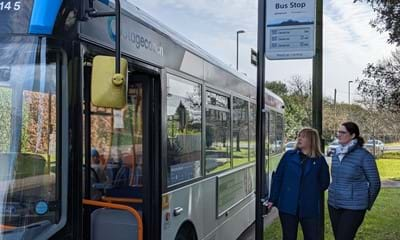Release date: 28 June 2022
The Department for Environment, Food and Rural Affairs (DEFRA) has confirmed a case of avian influenza in a herring gull in the Arundel area.
Advice to the public
The UK Health Security Agency (UKHSA) advises that avian flu is primarily a disease of birds and the risk to the health of the general public is very low.
As a precaution, however, it is important you do not touch or pick up any dead or visibly sick birds that you find.
If you find any dead wild birds in any location, including swans, ducks, geese, gulls, or birds of prey, please report to the DEFRA helpline in the first instance
Telephone: 03459 33 55 77
Depending on the circumstances, DEFRA may advise that you contact your district or borough local authority regarding the removal of dead birds.
Please see the gov.uk webpages for further advice on reporting and the disposal of dead wild birds
For the safety of residents and their dogs, we encourage all dog walkers to keep their dogs on leads if they come across visibly sick or dead birds.
Information for keepers of poultry/captive birds
Although poultry housing measures have now been lifted, the Avian Influenza Prevention Zone remains in place.
If you keep captive birds (which includes poultry) please ensure you follow the enhanced mandatory biosecurity guidance which is summarised below:
Poultry and captive bird keepers MUST:
• Cleanse and disinfect clothing, footwear, equipment, and vehicles before and after contact with poultry and captive birds – if practical, use disposable protective clothing
• Reduce the movement of people, vehicles, or equipment to and from areas where poultry and captive birds are kept, to minimise contamination from manure, slurry, and other products, and use effective vermin control
• Thoroughly cleanse and disinfect housing on a continuous basis
• Keep fresh disinfectant at the right concentration at all farm and poultry housing entry and exit points
• Minimise direct and indirect contact between poultry and captive birds and wild birds, including making sure all feed and water is not accessible to wild birds
If you suspect avian influenza in your own birds, please call Defra on 03000 200 301.
See Defra’s biosecurity advice for more information.


